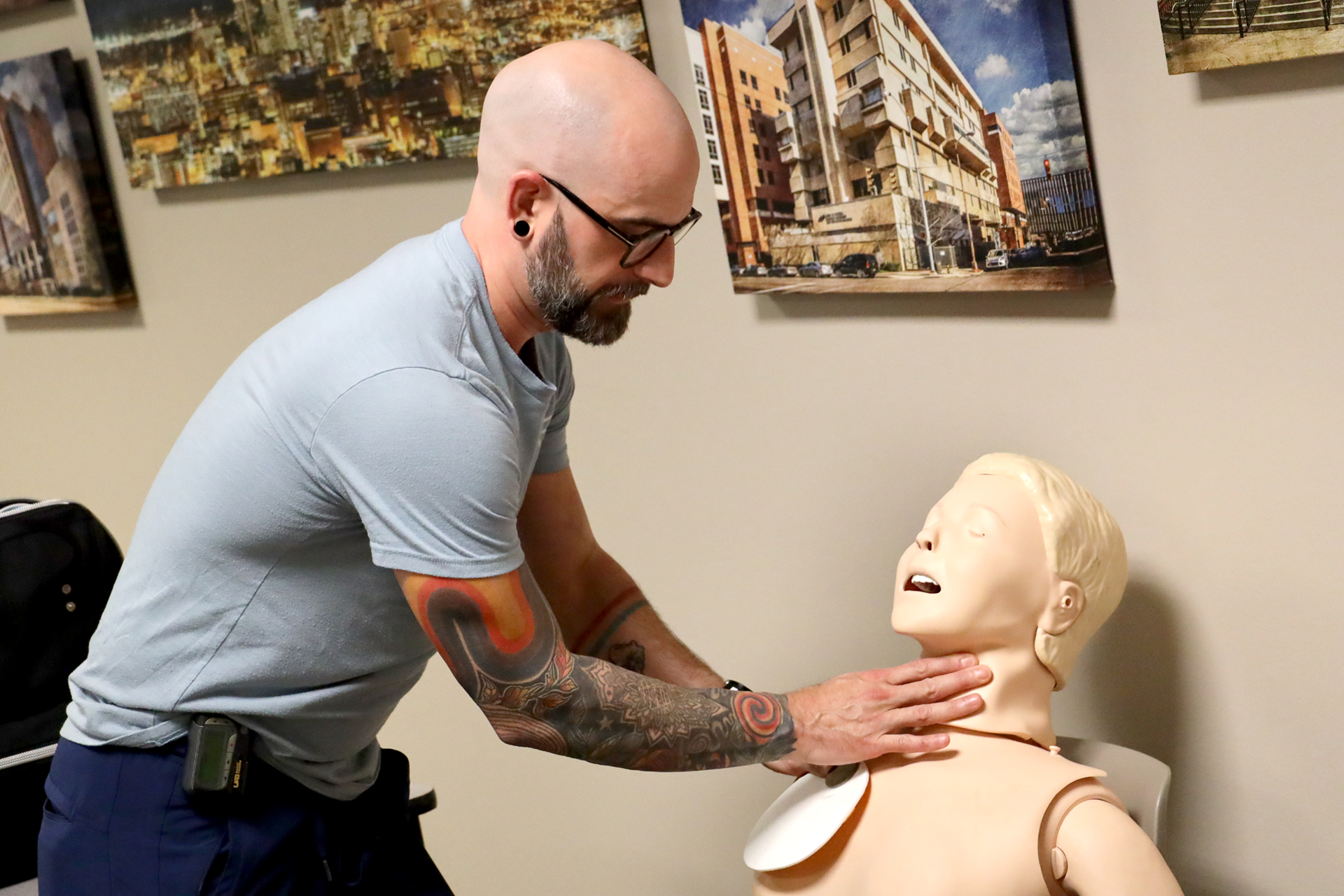Clinical Simulation delivers Code Skills Out of Lab

When it comes to providing exceptional simulations for all members of the health-care team, UAB Clinical Simulation delivers — literally.
For instance, Clinical Simulation’s Code Skills Out of Lab program effectively brings the lab to the learners.
“We’ve found an opportunity to meet people where they are and help them deliver training with their staff and team members, with the objective of improving patient care by providing those caring for them with the best tools possible,” said Andres Viles, Clinical Simulation’s director of immersive simulation.
As its name suggests, Code Skills Out of Lab focuses on the immediate care of cardiac arrest patients, but in areas where such events as a Code Blue are less frequent.
“Staff in such areas might be less familiar with how to respond and instead wait for the external code team to arrive,” Viles said. “But that might take anywhere from three to four minutes, which is valuable time that could be used to save the patient. So, to move the needle on the patient’s survival, we’ve shifted toward empowering the local teams to respond.”
As such, facilitators can coordinate with Clinical Simulation to host code skills simulations for health-care team members within their own spaces. The sessions employ Rapid Cycle Deliberate Practice (RCDP), a methodology that sees participants rapidly cycle between deliberate practice and directed feedback until they’ve effectively mastered the subject.
“Think of it like training in a batting cage or a driving range,” said Kelly Wertz, facilitator and clinical development specialist ambulatory. “Just keep practicing, and in between the practicing, we’re pausing and we’re coaching. It’s basically a practice-makes-perfect concept.”
Wertz regularly facilitates Code Skills Out of Lab sessions for the ambulatory nurse stat team, members of which run through the practice twice a month.
“Ambulatory doesn’t see a lot of Code Blues, thank goodness, but being able to let our staff respond to a situation, open a crash cart and use a defibrillator is very powerful, and it’s been very well received,” said Paige Gray, facilitator and clinical development specialist for O’Neal Cancer Service Line.
Wertz agreed. She recalled leading a team of medical assistants through the simulation. At the beginning of the session, none of them were certain how to proceed. By the end, she said, they’d mastered the process and had successfully defibrillated in less than two minutes.
“What I love the most about this are the looks on the first-time learners’ faces, because they realize they can do it,” Wertz said. “It’s wonderfully encouraging, as well as a great way to train.”
Code Skills Out of Lab opportunities are available to practically any department, Viles said. Interested parties need simply visit the Clinical Simulation website to begin the process of tailoring a simulation to fit their needs. Further, the website is host to numerous related resources on resuscitation, including e-learning opportunities on such topics as crash arts, ACLS and more. To learn more, visit uabsimulation.org.




0 Comments